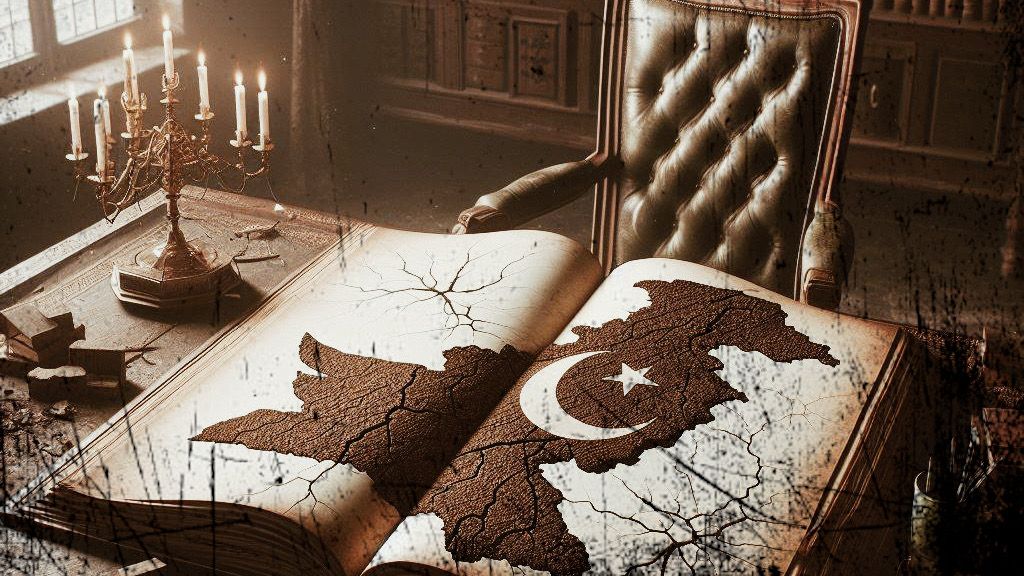Fazal Masood Malik and Farhan Khokhar, Canada

An election is a time for change and hope. Recent events in Pakistan, however, neither provided the desired change nor hope for the electorate. Consequently, the streets of Pakistan are brimming with a wave of civil unrest as the contested results of the general elections spurred thousands of citizens across major cities to voice their grievances publicly.
These demonstrations symbolise far more than a reactionary outcry against the alleged election rigging alone. They are the result of years of discontent with the entire governance framework, which has continually failed to uplift the Pakistani people and address their basic needs. There exists a gulf, nay, an ocean between the establishment – whether civilian leadership or military – and the expectations of an ordinary citizen. This situation forms the very crux of the turmoil unfolding across the nation today.
Over the decades, Pakistanis have helplessly witnessed the gradual erosion of the rule of law, the degeneration of human rights, and rampant corruption across all tiers of government machinery. The political and religious leadership have abdicated their roles. The average Pakistani continues to struggle with acute resource shortages, economic vulnerability, inflationary pressures, and a crippled public delivery system related to education, healthcare and basic utilities such as water and electricity. The troubles are multiplied due to the volatile law and order environment.
The pervasive distrust in leadership’s ability to guide the country towards stability only intensifies people’s frustrations, leading them to follow individuals claiming to be saviours despite their questionable intentions and qualifications. The present situation is a far cry from the 1960s, when Pakistan was on an economic and political ascent. It no longer has reliable friends nor money to pay for the basic necessities of its citizens. (“Pakistan Is Out of Friends and Out of Money,” The Economist, February 14, 2024)
Pakistan is trapped in cyclical debt, sometimes just to pay interest on previous loans. In the absence of economic autonomy, the International Monetary Fund looms large over the future trajectory of Pakistan. At the same time, socioeconomic indicators depict a rather dismal picture in terms of GDP per capita, employment opportunities, literacy rates, infant mortality, and overall human development.
Not surprisingly, many Pakistanis are voting with their feet – by migrating. A study in Karachi, the largest city in Pakistan, indicated that 48.7% of the youth want to leave Pakistan for various reasons, including unemployment, insecurity, economic problems, a lack of social support, and a lack of career opportunities. (Zafar, Ammad. “Determinants of Youth Emigration: A Case Study of Karachi,” Journal of Social Sciences and Humanities 60, No. 1 (2021), http://dx.doi.org)
Thus, many Pakistani citizens harbour a deep sense of dissatisfaction over the trajectory the country has been steered towards by those at the helm of state power. This power dynamic has primarily oscillated between civilian and military rule. Both have neglected their responsibilities.
The recent election, which has whipped up controversy over alleged irregularities, is only the tipping point that has served as a lightning rod for years of frustration and discontent. There is a realisation that regardless of which political party rigs itself to power, the nation will continue to bear the consequences of misgovernance for the benefit of the few rather than the prosperity of the masses.
The protests will likely ebb with time, but the underlying grievances will continue to fester – eventually culminating in yet another upheaval down the road. Comparisons with the division of 1971 between East & West Pakistan are not as far-fetched as people may believe. The polarisation creates a real risk of the country breaking apart on regional and linguistic grounds. This is what defines Pakistan’s turbulent trajectory as a nation-state.
The future is not lost. There can be hope. It requires fundamental recognition amongst both policymakers and the public that the issue at heart is more than just flawed elections or a lack of basic services. It is the gradual yet consistent betrayal by the state of the foundational principles of democracy, justice, transparency, and human rights.
Without acknowledging the deep-rooted erosion of moral values that has set in across society, Pakistan will not find viable solutions to break a vicious cycle defined by political instability, policy paralysis, institutional dysfunction, rampant injustice and the denial of basic human rights and dignity to nearly all of its citizens. The dissatisfaction will continue to brew on the streets once again until the system can demonstrate genuine progress on these fronts.
Most importantly, however, the leadership needs to demonstrate moral strength and compassion for human dignity, which is gravely lacking. The path forward must be paved on the principles of integrity, empathy and justice for all citizens rather than purely myopic political or economic considerations alone. A nation where a large segment of the youth population sees little hope both in their present state and in their prospects cannot sustain stability for long. Reinstalling the moral compass will be fundamental to any sustainable turnaround.
The Holy Quran advises all believers in these commanding words: “O ye who believe! Be steadfast in the cause of Allah, bearing witness in equity; and let not a people’s enmity incite you to act otherwise than with justice.” (Surah al-Maidah. Ch.5: V.9) In the early days of Islam, up until the era of the Rightly-Guided Caliphs, Bait-ul-Maal (public treasury) served all citizens of Arabia equally, without any distinction towards their faith, gender or creed. This sets an exemplary model not just for Pakistan or other countries that claim a Muslim heritage, but for any nation seeking to build a society founded on justice, equality and human dignity as the cornerstones for sustainable peace and inclusive progress.

